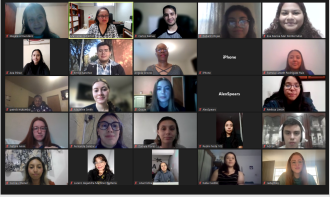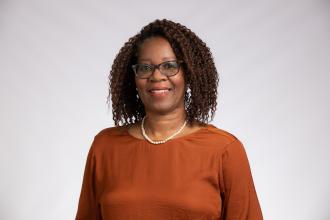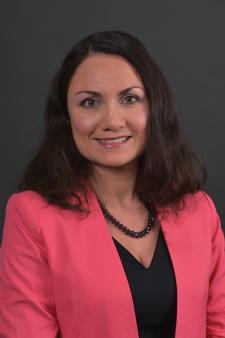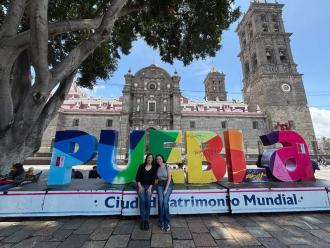Building global connections through the classroom: WMU’s Global Classrooms Collaborative
KALAMAZOO, Mich.—As the world becomes increasingly connected, preparing students to think, communicate and collaborate across cultures has never been more important. Western Michigan University’s Haenicke Institute for Global Education meets this need through its Global Classrooms Collaborative, a virtual program that allows faculty to internationalize their teaching and bring global engagement directly to the classroom through online connection.
The Global Classrooms Collaborative is more than a teaching initiative; it’s a virtual bridge that connects people, disciplines and cultures online, says Dr. Michelle Metro-Roland, associate director of external scholarships and faculty development at the Haenicke Institute for Global Education.
"The Global Classrooms Collaborative gives faculty and their students the opportunity to engage in substantive cross border work with colleagues around the globe," she says. "It's not a substitute for study abroad but it's another way to enhance the classroom through significant international engagement."
Applications are open for faculty to join the Spring 2026 Global Classrooms Collaborative. The professional learning community supports instructors as they design and implement these Collaborative Online International Learning (COIL) courses.
Participants receive comprehensive support throughout the process, including partner matching, course design guidance and intercultural pedagogy training, Metro-Roland says. The program also includes grant funding.
For Dr. Angela Groves, associate professor in the Bronson School of Nursing, the Global Classrooms Collaborative opened new avenues for teaching and connection. Partnering with a faculty member in Mexico, Dr. Groves designed a cross-cultural experience that allowed students to share unique perspectives.
“I truly enjoyed participating in the Global Classrooms Collaborative,” she says. “Engaging with my global partner from Mexico was an enriching and eye-opening experience for both myself and my students. Through this collaboration, we were able to share perspectives, exchange cultural insights and work together on meaningful projects that highlight the value of global connection in education.”
The benefits extend beyond course content, Groves says. It also transforms the way teaching is viewed and inspires students to see themselves as global citizens.
“From this experience, I learned how powerful cross-cultural communication can be in shaping global awareness and critical thinking,” she explains. The program offers an authentic and transformative opportunity to internationalize instruction. It not only enhances curriculum and student engagement but also builds meaningful global relationships.”
Dr. Anna Popkova, associate professor in the School of Communication, says the Global Classrooms Collaborative offers both personal and professional growth. Her collaboration with the Universidad de las Américas Puebla (UDLAP) in Mexico connected WMU and UDLAP students in a joint project which challenged students to learn about different cultures.
"This was one of those learning experiences that leads to many ‘aha!’ moments and discoveries, from realizing how big Mexico is to finding out how much they had in common with each other despite cultural differences," says Popkova.
Beyond student learning, Popkova found the collaboration to be a meaningful professional challenge. “Designing and running Global Classrooms is a lot of work because you have to constantly coordinate with your international partner and their students, in addition to your own. In my case, my class was fully online and asynchronous while my partner’s class was in person. We had to think carefully about how to make it work and how to design the experience in a way that would be accessible and valuable to all students.”
“The effort you put into designing and running the experience is 100% worth it because most students love it,” she says. “As an educator, I constantly search for assignments and projects that make students excited about learning and connecting with people across the planet. Global Classrooms, when designed well, can absolutely be that kind of experience.”
Get Involved
The Haenicke Institute for Global Education is accepting applications for faculty to join the Global Classrooms Collaborative Spring 2026.
About the Haenicke Institute for Global Education
The Diether H. Haenicke Institute for Global Education, established in 1998, fosters an environment that supports the global engagement of the Western community. Its offices assist nearly 2,500 international students and alumni at home and abroad with immigration, student success and post-graduation job training.
The institute also facilitates short- and long-term study abroad programs for students, faculty and staff. It hosts a variety of global learning activities, such as designing and promoting scholarship and academic opportunities on campus; providing K-12 outreach; hosting lectures, panels and events; and showcasing arts, entertainment and culture from around the world. Learn more about the Haenicke Institute for Global Education.
For more WMU news, arts and events, visit WMU News online.





